The American Dream: Rich are fearful for its survival, but poor still believe
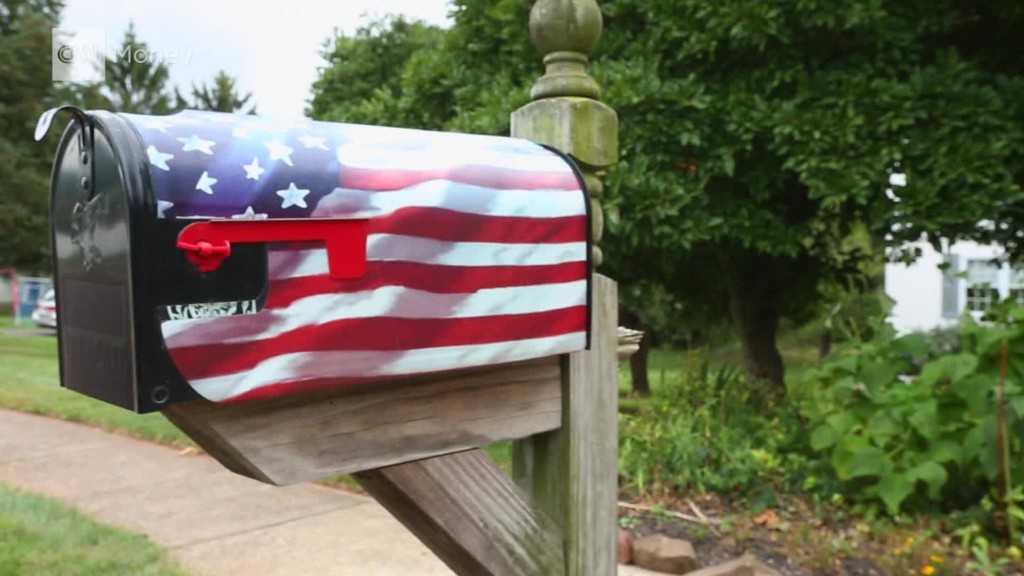
Rosey Lee Josie makes $10.65 an hour cooking large vats of macaroni to be sold in supermarkets. She's worked at the same factory in Cleveland, Ohio for a decade.
The pay frustrates her sometimes. But not enough to put her down. When CNNMoney asks if she's lived the American Dream, she doesn't hesitate to say a resounding YES.
"Most of my dreams have come true," says Josie, a grandma in her 60s, with a black belt in karate. She moved to Cleveland from Georgia in 1969 to escape the Jim Crow south and has worked ever since, mostly in food prep.
Josie is proud of her black belt and her children. She's ready to retire, but she continues to work in order to help her kids and grandkids. Josie plans to vote for Hillary Clinton because of Clinton's promise to raise the minimum wage.
CNNMoney traveled to three key battleground states in September -- Florida, Ohio and Pennsylvania. We spoke to over 80 voters across a wide spectrum and asked them all if they had lived the American Dream. Nearly everyone said yes.
It was an unexpected outflow of optimism in a year when 71% of voters say the economy is rigged, according to a MarketWatch poll this summer.
But when CNNMoney asked voters if they thought their kids would fare as well (or better), the responses varied widely, mostly by income.
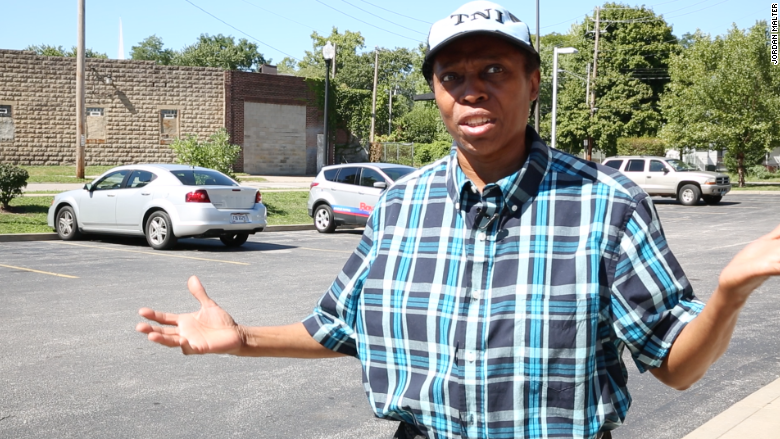
The poor aspire to the American Dream
Belief in the American Dream was alive and well in minority and low-income communities. It was strongest among voters like Krista Shockey
"I believe I have lived [the dream]. I have had three beautiful children and I own my own home," she said, dabbing her eyes, over lunch at a diner in Waverly, Ohio, a depressed area about an hour south of Columbus.
"I feel I'm blessed. I really do. I am proud to be living in this country," said Shockey, a life-long Democrat, who plans to vote for Donald Trump this year.
Shockey embodies the mix of emotions that so many Americans feel right now. She's angry at politicians and global trade for causing so many jobs to evaporate in her town. But on a personal level, she feels blessed and optimistic.
It's remarkable, given that her own financial situation isn't great. Shockey lives on government disability payments after injuring herself years ago.
People like Shockey are mad at "the system," but they personally want to believe they will survive and thrive, no matter what. That's especially true among the poor, says Jennifer Silva, an assistant professor of sociology at Bucknell University.
"The American Dream is sacred in our society," Silva says. It's almost unpatriotic to say it's dead, she finds.
Related: Watch the full video series
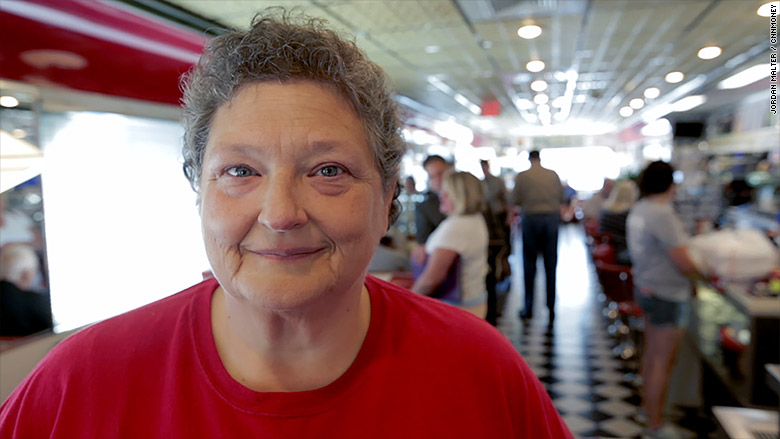
The wealthy are some of the most worried
But not everyone is optimistic. There are fears that the dream will not survive, especially among one group: Wealthy, white voters.
Like many Americans, Dan Grant believes he personally has lived the dream. But he worries about whether his grandkids will have as good of a life as he did.
"A high school education was all I had. I got by just fine because there were jobs available at the time that would provide a decent income," Grant told CNNMoney.
The 67-year-old worked for years at BellSouth (now part of AT&T). Grant says he's "not rich by any stretch," but "I'm comfortable. I don't know if that's going to be available for them."
Grant meets up with several other retirees every Thursday at Conway Cafe in Orlando, Florida. Some even have baseball caps that say "ROMEO," which stands for "Retired Old Men Eating Out."
He and his ROMEO retiree gang are voting for Trump. They hope Trump will use his business experience to generate more jobs.
Related: Is anyone worried about America's $19 trillion debt?
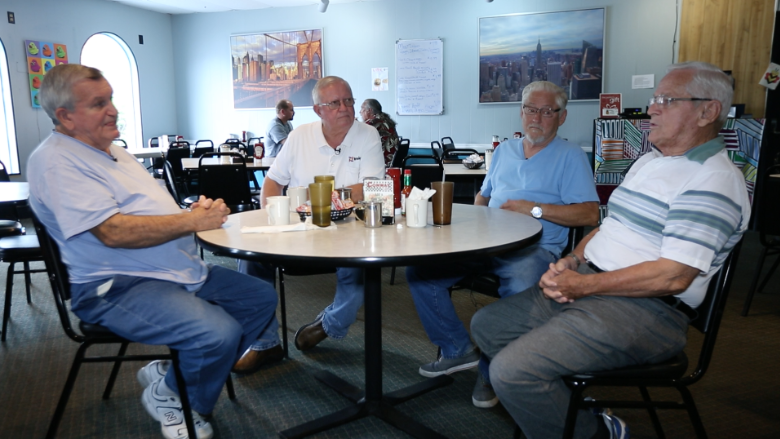
Can it only get worse for whites?
Pundits have cast this election as one between the "elites" and those "left-behind," a loose term to describe people hurt by manufacturing jobs that have been lost to robots and foreign countries.
The consensus is that Bernie Sanders and Trump tapped into the deep economic anxiety by saying, repeatedly, that the economy is rigged against the little guy (although Sanders and Trump offered very different solutions to fix it).
But it's more complex than that. Trump's supporters aren't just blue-collar workers afraid for their jobs. He also has support among wealthy -- mostly white -- Americans. They aren't worried for themselves, but they are for their children. CNNMoney found it's about money and race this year.
"The reason that high-income whites don't think that anything is going to get better is because it can't get any better for them," said Dyrone Smith, an African-American non-profit director in Cleveland who works on race relations.
Silva, the sociology professor, agrees.
"It's more about relative position versus objective position. They're afraid of falling," she said, even though whites currently have 10 times the wealth of minorities in America.
Related: Hillary Clinton might lose Ohio because she badmouthed coal
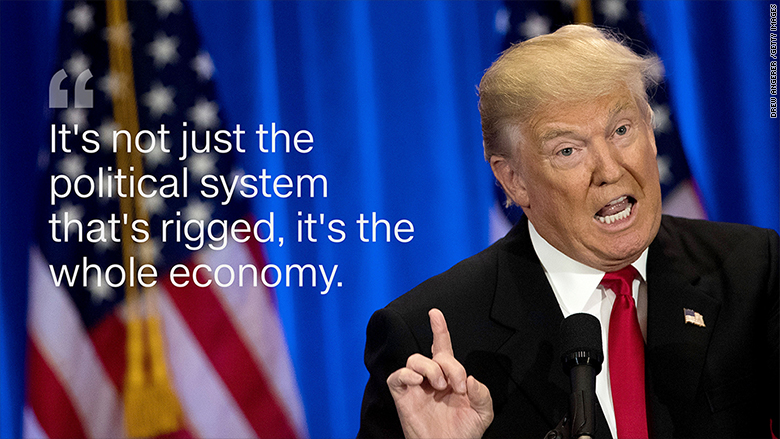
'It's about my kids'
Beth Hamilton lives in the prosperous suburbs outside of Philadelphia.
"My whole life is about my four kids," Hamilton, who's in her mid-50s, told CNNMoney. "I am concerned about the opportunities that they'll have."
She and her husband both work. He's a doctor. She's an event planner. He does some freelance work on the side too. Their hard work has allowed them to save and get ahead. She doesn't see her children -- mostly in their 20s -- being able to do that.
"I'm not saying I want them to live in a big house. You don't have to live in a big house to be successful," Hamilton says. "I want them to be able to afford to buy a house though. That's very difficult in this economy."
Hamilton doesn't particularly like Clinton or Trump. But she's sticking with Trump for this election because she's worried about the economy and immigration.
A CNN/Kaiser Family Foundation poll last year found that over half of blacks and Hispanics believe that it will be easier for them to achieve the American Dream than their parents. Meanwhile, only 35% of whites said the same thing.
"The reason why I think that minorities think that things can get better is because it can't get any worse for them," Smith said.
Related: Voters say 2016 is the 'lesser of 2 evils' election
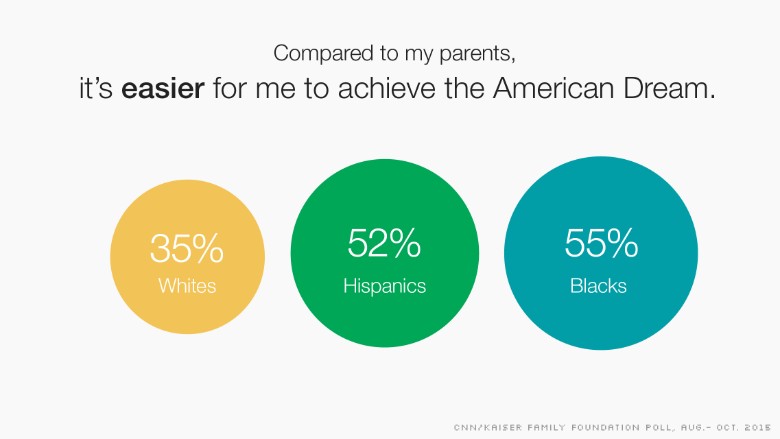
Success is an attitude
At the end of the day, Americans told CNNMoney they want to be in control of their own economic destiny.
They want to feel like Ephraim Maldonado. He and his family lived in a small apartment in Brooklyn before relocating to the Orlando area 12 years ago.
"The minute I moved, about a month later, we were actually able to become first-time home buyers," he said. "Coming from an apartment to a 3-bedroom, two-bathroom, in-ground pool [home]. That's the American Dream."
It wasn't always easy. He washed dishes in restaurants before working his way up the career ladder.
Despite all the negative rhetoric on the campaign trail, CNNMoney finds that the eternal American "sunshiny day" optimism still exists, even in struggling parts of America. Tapping into that will be key for the next president, whoever it is.
As Smith told us on a warm fall day in Ohio, "It's difficult to ascertain truly what the future holds, but I do think that we need to be more positive, all of us."
